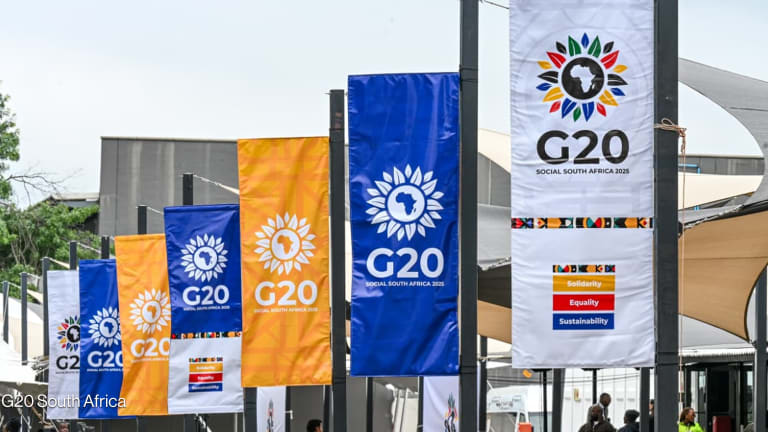
Europe’s multiyear rethink of its relationship with Africa risks losing ground to other global players, Portugal’s ambassador to the European Union warned this week.
“I have to say that there is a lot of talk about [Africa], but while we discuss among ourselves what to do, other actors act on the ground,” Nuno Brito told reporters Tuesday. The briefing was a chance to set out Portugal’s priorities for its six months leading the EU agenda, where it foresees relations with Africa being of “central importance.”
Portuguese Prime Minister António Costa said in a recent interview with the Lusa news agency that he hopes a summit between heads of state from the EU and the African Union states — initially planned for fall 2020 but delayed due to the COVID-19 pandemic — can take place before July.
An EU official working on Africa told Devex that the timeline might be overly optimistic, given uncertainty over COVID-19 and the need to wait for the outcome of AU elections in February. But the official also contested Brito’s claim that the EU had taken scant concrete action, pointing to the bloc’s response to the pandemic where it rejiggered billions of dollars in assistance for health and related issues. The official was not authorized to talk to the media and spoke on the condition of anonymity.
What killed the EU-AU meeting?
"You need two to tango," according to one insider — but in December, the EU found itself without a partner.
The timing of the rescheduled summit largely depends on Charles Michel, president of the European Council. The former Belgian prime minister and development minister may be wary of committing to a date too soon, after a smaller meeting with AU leaders in December, months in the making, was called off by the AU at the last minute.
Michel said at a press conference Tuesday that the details of this year’s larger summit had yet to be agreed, while emphasizing the need to talk about investment, climate change, digitalization, debt, and the future relationship between the EU and the Organisation of African, Caribbean and Pacific States.
An official from another member state told Devex on Wednesday that holding the summit would be an important signal. “It is not too late to change some of the tone with regard to EU-Africa relations,” said the official, who was not authorized to talk to the media and spoke on the condition of anonymity. “It is still far too much about the EU wish list rather than a genuine and, yes, at times uncomfortable but more honest partnership.”
The official said that too many voices in EU institutions and member states had focused on migration recently, “an area where partnership apparently is not wanted or only one way — i.e. ‘You must take your people back.’ [Portugal] can help to change that narrative a little.”
Prior to Portugal taking over the rotating presidency of the Council of the EU, Germany, Croatia, and Finland all vowed during their terms to pursue a renewed partnership with Africa, matching the reset in relations envisaged by European Commission President Ursula von der Leyen in late 2019.
5 questions about the EU's new blueprint for Africa
From the coherence of the EU's relationship with Africa to the future of economic partnership agreements, Devex had some burning questions for the European Commission about the first draft of its new Africa strategy.
The commission’s latest Africa strategy from March 2019 was supposed to be consummated with input from the African side at the EU-AU summit, usually held every three years — but COVID-19 intervened. EU foreign affairs chief Josep Borrell’s call in October to make 2021 “the Africa year for the European Union'' was also a tacit acknowledgment that 2020 had gone off course.
The commission strategy highlights green transition and energy access, digital transformation, sustainable growth, and jobs; peace and governance; and migration and mobility as the possible foundations of the new partnership.
“I think that it is very important that we look at this issue in a practical way,” Brito said Tuesday. “That’s why we want to stimulate, as soon as possible, a follow-up of a high-level political dialogue between the African continent and European Union — a dialogue without taboos, a dialogue that could include all elements that should be there, from security to migration to development to trade to cooperation.”
Niels Keijzer, senior researcher at the German Development Institute, told Devex by email Wednesday that given its involvement in co-organizing the first two EU-Africa summits in 2000 and 2007, the Portuguese EU presidency is well placed to contribute to strengthening dialogue and cooperation with Africa.
“Although understandably a lot of discussion will be about the timing and form of this summit, there is a strong need to first reach agreement about what should come out of it,” Keijzer wrote. “In that regard, I was glad to see the Presidency's acknowledgement of the need for a dialogue without taboos.”








